
A foundational new collection examining the mechanics of privacy in the digital age.
The falling costs of collecting, storing, and processing data have allowed firms and governments to improve their products and services, but have also created databases with detailed individual-level data that raise privacy concerns. This volume summarizes the research on the economics of privacy and identifies open questions on the value of privacy, the roles of property rights and markets for privacy and data, the relationship between privacy and inequality, and the political economy of privacy regulation.
Several themes emerge across the chapters. One is that it may not be possible to solve privacy concerns by creating a market for the right to privacy, even if property rights are well-defined and transaction costs are low. Another is that it is difficult to measure and value the benefits of privacy, particularly when individuals have an intrinsic preference for privacy. Most previous attempts at valuation have focused only on quantifiable economic outcomes, such as innovation. Finally, defining privacy through an economic lens is challenging. The broader academic and legal literature includes many distinct definitions of privacy, and different definitions may be appropriate in different contexts. The chapters explore a variety of frameworks for examining these questions and provide a range of new perspectives on the role of economics research in understanding the benefits and costs of privacy and of data flows. As the digital economy continues to expand the scope of economic theory and research, The Economics of Privacy provides the most comprehensive survey to date of this field and its next steps.

The scope and reach of information, driven by the explosive growth of information technologies and content types, has expanded dramatically over the past 30 years. The consequences of these changes to records and information management (RIM) professionals are profound, necessitating not only specialized knowledge but added responsibilities. RIM professionals require a professional ethics to guide them in their daily practice and to form a basis for developing and implementing organizational policies, and Mooradian’s new book provides a rigorous outline of such an ethics. Taking an authoritative principles/rules based approach to the subject, this book comprehensively addresses
- the structure of ethics, outlining principles, moral rules, judgements, and exceptions;
- ethical reasoning, from meaning and logic to dilemmas and decision methods;
- the ethical core of RIM, discussing key topics such as organizational context, the positive value of accountability, conflicts of interest, and confidentiality;
- important ethical concerns like copyright and intellectual property, whistleblowing, information leaks, disclosure, and privacy; and
- the relationship between RIM ethics and information governance.
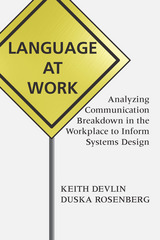


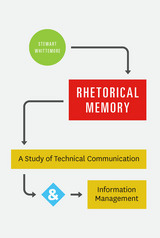
In Rhetorical Memory, Stewart Whittemore demonstrates that strategies we use to manage information—techniques often acquired through trial and error, rarely studied, and generally invisible to us—are as important to our success as the end products of our work. First, he situates information management within the larger field of rhetoric, showing that both are tied to purpose, audience, and situation. He then dives into an engaging and tightly focused workplace study, presenting three cases from a team of technical communicators making use of organizational memory during their everyday work. By examining which techniques succeed and which fail, Whittemore illuminates the challenges faced by technical communicators. He concludes with a number of practical strategies to better organize information, that will help employees, managers, and anyone else suffering from information overload.
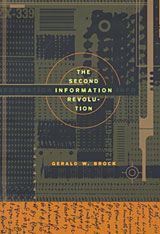
Thanks to inexpensive computers and data communications, the speed and volume of human communication are exponentially greater than they were even a quarter-century ago. Not since the advent of the telephone and telegraph in the nineteenth century has information technology changed daily life so radically. We are in the midst of what Gerald Brock calls a second information revolution.
Brock traces the complex history of this revolution, from its roots in World War II through the bursting bubble of the Internet economy. As he explains, the revolution sprang from an interdependent series of technological advances, entrepreneurial innovations, and changes to public policy. Innovations in radar, computers, and electronic components for defense projects translated into rapid expansion in the private sector, but some opportunities were blocked by regulatory policies. The contentious political effort to accommodate new technology while protecting beneficiaries of the earlier regulated monopoly eventually resulted in a regulatory structure that facilitated the explosive growth in data communications. Brock synthesizes these complex factors into a readable economic history of the wholesale transformation of the way we exchange and process information.
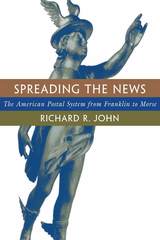
In the seven decades from its establishment in 1775 to the commercialization of the electric telegraph in 1844, the American postal system spurred a communications revolution no less far-reaching than the subsequent revolutions associated with the telegraph, telephone, and computer. This book tells the story of that revolution and the challenge it posed for American business, politics, and cultural life.
During the early republic, the postal system was widely hailed as one of the most important institutions of the day. No other institution had the capacity to transmit such a large volume of information on a regular basis over such an enormous geographical expanse. The stagecoaches and postriders who conveyed the mail were virtually synonymous with speed.
In the United States, the unimpeded transmission of information has long been hailed as a positive good. In few other countries has informational mobility been such a cherished ideal. Richard John shows how postal policy can help explain this state of affairs. He discusses its influence on the development of such information-intensive institutions as the national market, the voluntary association, and the mass party. He traces its consequences for ordinary Americans, including women, blacks, and the poor. In a broader sense, he shows how the postal system worked to create a national society out of a loose union of confederated states. This exploration of the role of the postal system in American public life provides a fresh perspective not only on an important but neglected chapter in American history, but also on the origins of some of the most distinctive features of American life today.
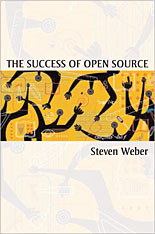
Much of the innovative programming that powers the Internet, creates operating systems, and produces software is the result of “open source” code, that is, code that is freely distributed—as opposed to being kept secret—by those who write it. Leaving source code open has generated some of the most sophisticated developments in computer technology, including, most notably, Linux and Apache, which pose a significant challenge to Microsoft in the marketplace. As Steven Weber discusses, open source’s success in a highly competitive industry has subverted many assumptions about how businesses are run, and how intellectual products are created and protected.
Traditionally, intellectual property law has allowed companies to control knowledge and has guarded the rights of the innovator, at the expense of industry-wide cooperation. In turn, engineers of new software code are richly rewarded; but, as Weber shows, in spite of the conventional wisdom that innovation is driven by the promise of individual and corporate wealth, ensuring the free distribution of code among computer programmers can empower a more effective process for building intellectual products. In the case of Open Source, independent programmers—sometimes hundreds or thousands of them—make unpaid contributions to software that develops organically, through trial and error.
Weber argues that the success of open source is not a freakish exception to economic principles. The open source community is guided by standards, rules, decisionmaking procedures, and sanctioning mechanisms. Weber explains the political and economic dynamics of this mysterious but important market development.
READERS
Browse our collection.
PUBLISHERS
See BiblioVault's publisher services.
STUDENT SERVICES
Files for college accessibility offices.
UChicago Accessibility Resources
home | accessibility | search | about | contact us
BiblioVault ® 2001 - 2024
The University of Chicago Press









